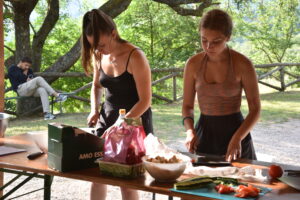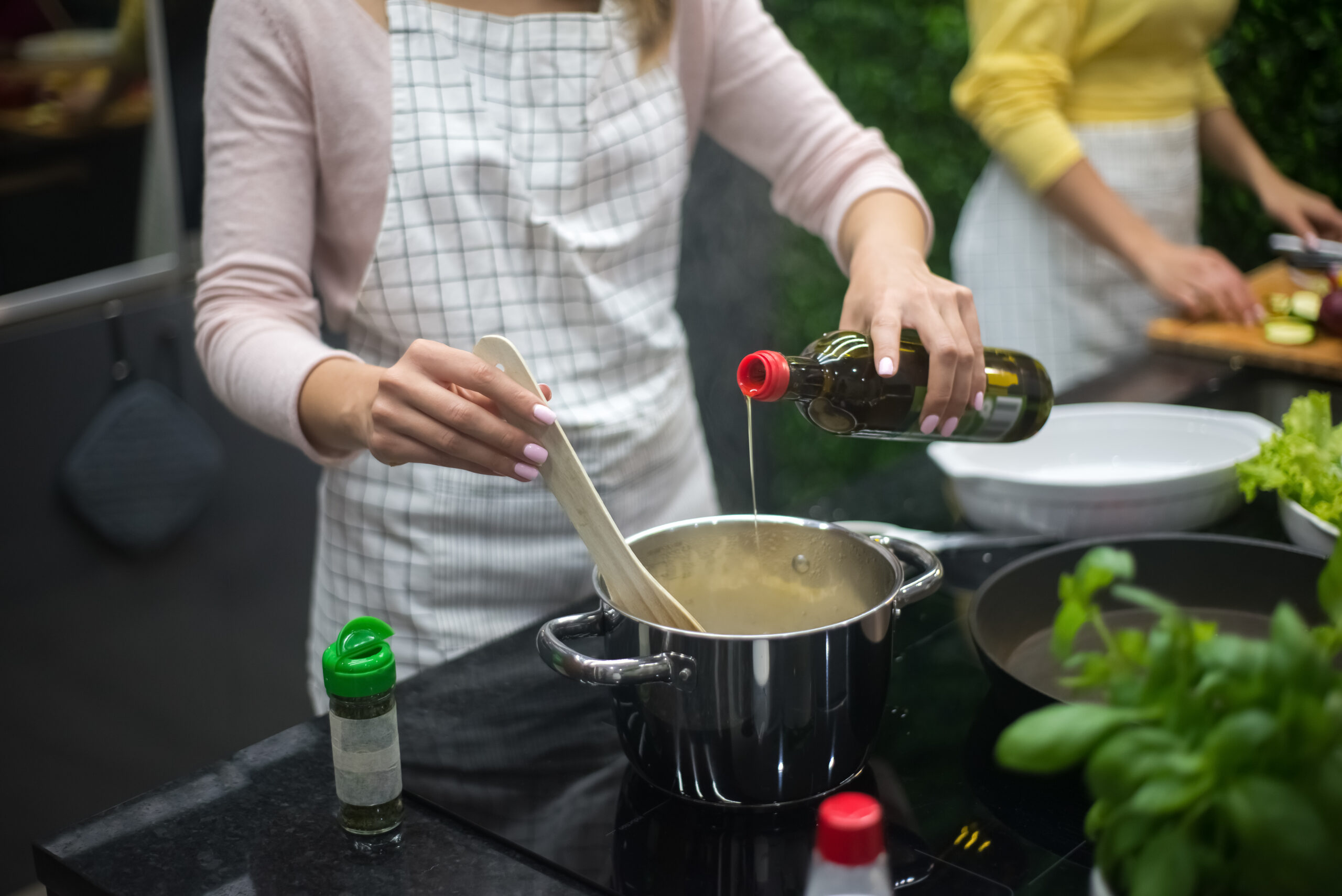The project provided eight Estonian kindergartens and schools with an opportunity to evaluate their kitchen equipment, menu, cooking practices, and waste management. The project aimed to introduce environmentally friendly alternatives wherever possible and encourage sustainable food practices.
The goal was to provide healthy, high-quality, and affordable food while reducing the environmental impact of school and kindergarten kitchens. This is part of the larger effort to implement sustainable food systems in educational institutions, and the use of organic and locally sourced ingredients plays a crucial role in improving cooking and reducing environmental impact.
It is worth noting that in Tartu, all schools and several kindergartens already use organic ingredients for student meals.
The participating schools in Tartu have taken the initiative in dealing with the problem of food waste and have implemented good practices to prevent it.
Example1: Tartu Descartes School provides an opportunity for children in the long-day group to eat the remaining lunch, rather than throwing it away. Additionally, anyone who wishes to can go back to the canteen after lunch and consume the remaining food from the school lunch.
Example 2: Tartu Kivilinna School has introduced weighing the food waste left on the plate, which provides useful information for students, the school administration, and the caterer (P. Dussmann Eesti OÜ). The cafeteria keeps a daily record of food waste, which shows the number of students who eat and the amount of leftover food in liters. Some discarded food waste is sent to farms for use as animal feed.
Replication: Cen be replicated in other school using the Clickis Network methodology
Impact: Our food choices have a significant environmental impact, and making school kitchens more environmentally friendly can contribute significantly to reducing carbon emissions.



